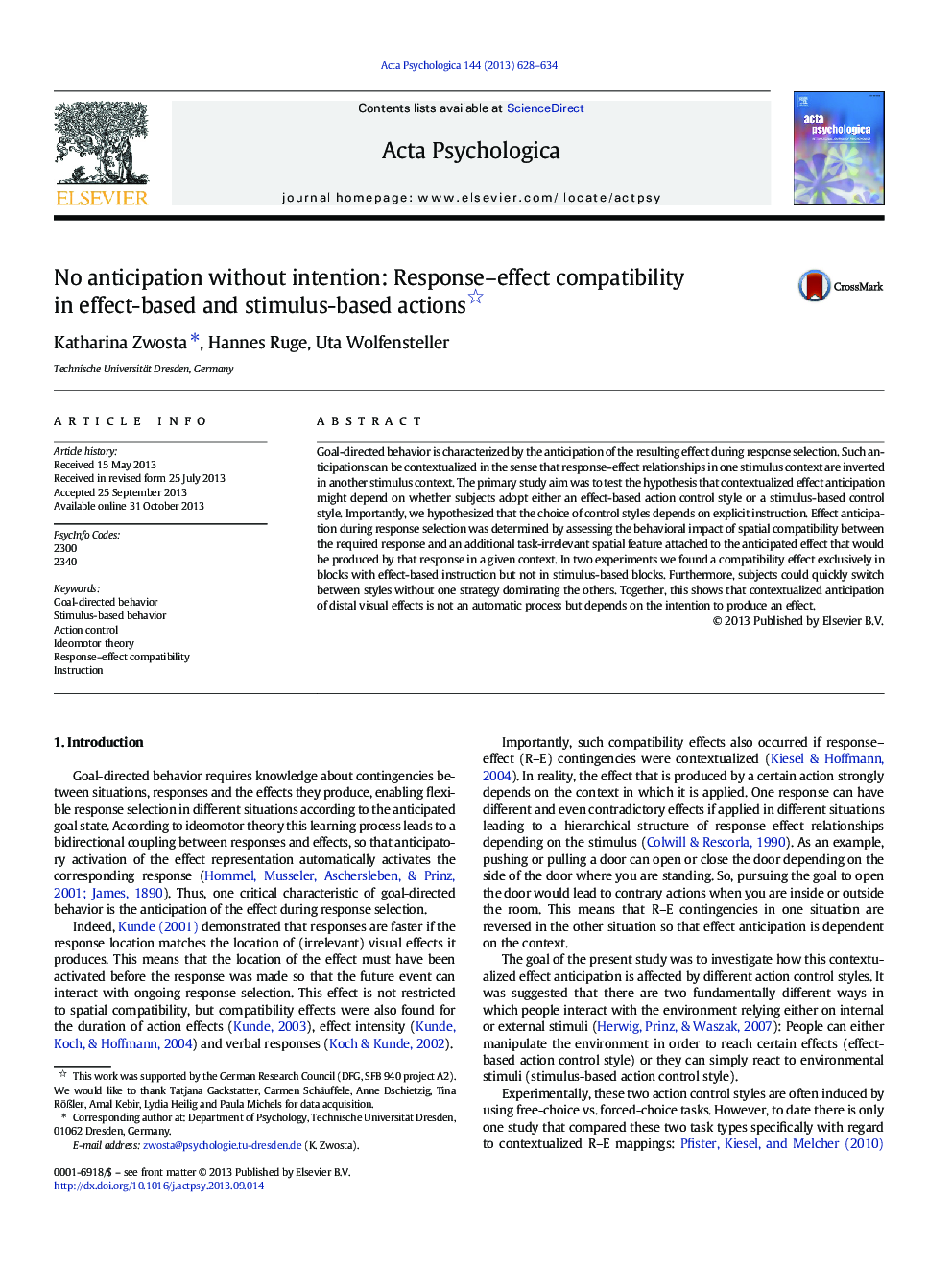| Article ID | Journal | Published Year | Pages | File Type |
|---|---|---|---|---|
| 10453814 | Acta Psychologica | 2013 | 7 Pages |
Abstract
Goal-directed behavior is characterized by the anticipation of the resulting effect during response selection. Such anticipations can be contextualized in the sense that response-effect relationships in one stimulus context are inverted in another stimulus context. The primary study aim was to test the hypothesis that contextualized effect anticipation might depend on whether subjects adopt either an effect-based action control style or a stimulus-based control style. Importantly, we hypothesized that the choice of control styles depends on explicit instruction. Effect anticipation during response selection was determined by assessing the behavioral impact of spatial compatibility between the required response and an additional task-irrelevant spatial feature attached to the anticipated effect that would be produced by that response in a given context. In two experiments we found a compatibility effect exclusively in blocks with effect-based instruction but not in stimulus-based blocks. Furthermore, subjects could quickly switch between styles without one strategy dominating the others. Together, this shows that contextualized anticipation of distal visual effects is not an automatic process but depends on the intention to produce an effect.
Related Topics
Life Sciences
Neuroscience
Cognitive Neuroscience
Authors
Katharina Zwosta, Hannes Ruge, Uta Wolfensteller,
